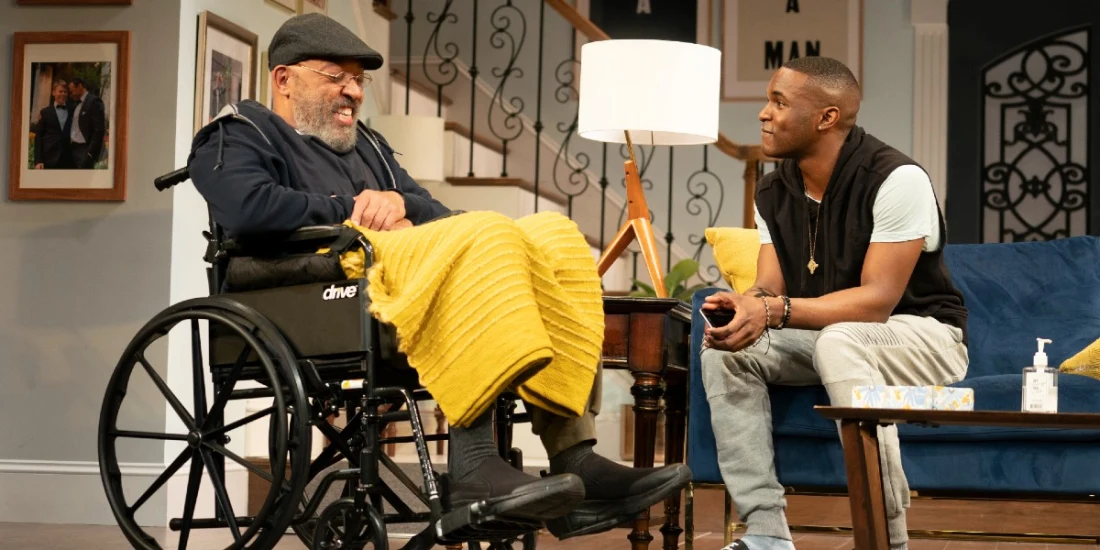'...what the end will be' review — generational family drama has good bones, but little nuance
In ...what the end will be, an always earnest but seldom subtle play about three generations of gay, Black men living together in Atlanta, a recurring image nods to the power of scent to trigger memories.
To recall the late love of his life, the elderly patriarch Bartholomew Kennedy (Keith Randolph Smith) holds the deceased man's boxers to his nose. It's a startling stage picture.
That said, audience members seeking a whiff of nuance or insight in this Roundabout Theatre Company production will be left largely wanting. The script by playwright Mansa Ra struggles to find a consistent rhythm that feels like actual people talking to each other. Margot Bordelon's direction doesn't help much; it all adds up to a stagy experience.
Too bad, since the concept is a good one. Situating family members and their significant others under one roof and seeing what happens is a time-honored plot stirrer. Ra's story ups the ante on urgency: Bartholomew has moved in with his son Maxwell (Emerson Brooks) because he's battling cancer. His prognosis, according to his no-nonsense home hospice nurse Chloe (Tiffany Villarin), isn't bright.
So he's come to his son's house, an airy space with soaring ceilings, paintings on every wall, and a living room ramp to accommodate Bart's wheelchair. Modifying a house is one thing; allowing oneself to adapt is another. Accepting each other for who they are, despite shared experiences, has always been a challenge for the Kennedys.
That's exacerbated by Maxwell being a my-way-or-the-highway narcissist who's big on masculinity and appearances. Prominently displayed side-by-side artworks say as much. The prints read "I AM A MAN," one in black letters against a white background, the other in white letters on black. Max likes to brag that "three of the real housewives of Atlanta" are his neighbors.
Career-wise, Maxwell is a success. Personally, not so much. He's got issues with all the men in his life. "You kicked me out right after high school, and here you are in your 70s moving in with me," he says to his dad for some rapid-action exposition. Max's husband, Charles (Randy Harrison), who's white, is no fan of Max's boozing and mean-streak bullying. Maxwell expects his 18-year-old son Tony (Gerald Caesar) to follow his rules — even when it comes to dating.
Tony's burgeoning relationship with Antoine (Ryan Jamaal Swain), a fellow student who says his preferred pronouns are "he, him, his, but I also accept 'fierce bitch,'" and dresses, per the script, in the latest "gender-bending fad," doesn't fit Max's standard. Max calls Antoine a "fairy queen," despite his own bristling at Bartholomew's racist slurs about Charles. Like father, like son. The bigotry keeps coming from inside the house.
Over the play's 90 minutes, the story predictably moves toward tidy resolutions for the various fractures dividing the Kennedys. When all is said and done, the play looks at how men deal with wounds and pain — past, present, and future. Three-quarters of the way through the drama, Bartholomew honestly addresses the misery that bone cancer is putting him through — and what he plans to do about it.
It's a turning point for him, and, briefly, the play. At this moment, ...what the end will be finds a groove that is gripping and real. Better late than never.
Originally published on
